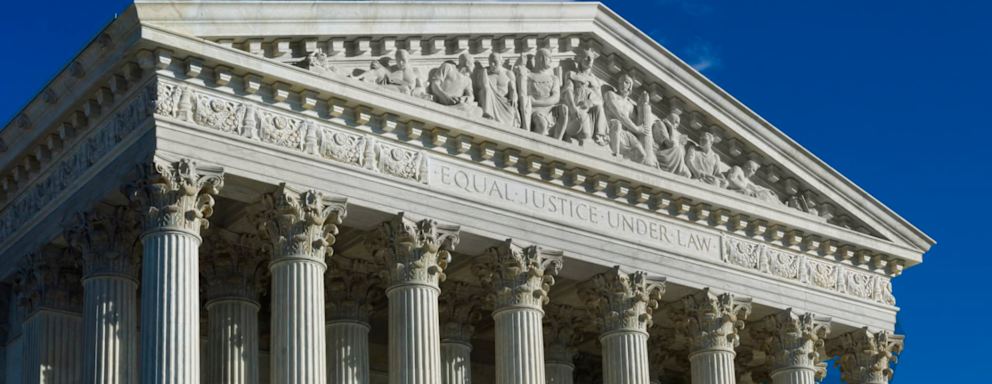How Nursing Education Leaders Are Responding to Supreme Court Affirmative Action Decision
 Credit: Getty Images
Credit: Getty Images- The Supreme Court ruled college and university admission policies that include race considerations are unconstitutional.
- Multiple health and education experts are concerned this move will negatively impact student body diversity.
- In the wake of this ruling, secondary institutions are taking immediate action to protect diversity.
On June 29, the Supreme Court held that admission policies, including race considerations at Harvard University and the University of North Carolina at Chapel Hill (UNC-Chapel Hill), are unconstitutional. This ruling effectively ended affirmative action in its current form.
And nursing schools will not be exempt from these effects.
“Many universities have for too long wrongly concluded that the touchstone of an individual’s identity is not challenges bested, skills built, or lessons learned, but the color of their skin,” wrote Chief Justice John Roberts for the 6-2 majority in the Supreme Court’s decision regarding Harvard’s policies. “This Nation’s constitutional history does not tolerate that choice.”
The American Nurses Association (ANA) and the American Association of Colleges of Nursing (AACN) immediately released statements denouncing the decision and assuring nurses they would work closely with nursing programs.
“AACN reaffirms our commitment to serving as a champion for diversity, equity, and inclusion,” said Dr. Deborah Trautman, AACN president and chief executive officer. “While recognizing the importance of a diverse nursing workforce to reducing health disparities, addressing social determinants of health, and improving patient outcomes.”
SCOTUS Affirmative Action May Impact Diversity in Nursing
Experts are concerned that the ruling could have far-reaching consequences and worsen health and legal disparities in people of color. Many feel that the affirmative action program may have been the only policy that protected diversity in the admissions process of professional institutions.
“Fewer Black health professionals means less culturally responsive and equitable care for Black patients,” Uché Blackstock, MD, an emergency physician and founder of Advancing Health Equity, told Yahoo News. “Also, the lack of Black representation among Black health professionals is a problem for younger generations since ‘you can’t be what you can’t see’.”
The ANA statement noted, however, that admissions practices are just one aspect of diversity, equity, and inclusion (DEI) efforts.
“Race conscious admissions and affirmative action were intended to be a small part of a broader solution to mitigate harm which continues to be perpetuated on marginalized and disadvantaged groups,” the statement read.
UNC-Chapel Hill responded to the decision, stating it would follow the Supreme Court’s guidance and reiterated its commitment to bringing together a talented group of students with different perspectives and life experiences.
“We are passionately public, and that will always be true,” said Kevin M. Guskiewicz, Chancellor of UNC-Chapel Hill, in a press release.”Our strategic plan’s first initiative is to ‘Build our Community Together.’ We will build that community with you and work to provide a campus environment where all of our students know they belong and can thrive.”
How Can Colleges and Universities Protect Equality?
In the past years, nine states banned race-conscious admission criteria. For example, California implemented Proposition 209 in 1996, and Michigan adopted Proposal 2 in 2006. In both cases, the policy shifts and attempts to foster racial diversity were unsuccessful in the face of hundreds of millions of dollars invested in outreach programs.
Despite not achieving the desired diversity goals statewide, some schools have developed a more holistic approach. The Betty Irene Moore School of Nursing at the University of California, Davis (UC Davis) is just one example of a nursing school that has significantly improved diversity without using race-based admission criteria.
In an article released roughly one week after the Supreme Court’s decision, CBS News Sacramento described UC Davis’ admissions process, which accounts for a person’s primary language, living in a medically underserved area, and attending an under-resourced high school. These are challenges faced by minority students. According to the university’s statistics, 46% of the students starting class in July 2023 were first-generation students.
The UC Davis schools of nursing and medicine adopted these processes, which may serve as one model to help guide admission processes across the nation as schools adjust to a new environment. Associate professor Jessica Draughon Moret chairs the school’s Recruitment, Admissions, and Fellowship Committee.
“We are looking for unique experiences that will increase the diversity of our cohorts. We are looking for diversity of thought, in addition to diverse experiences. We weigh applications based on different life experiences,” she explained. “Then we also look at GPA, aptitude, essays, and letters of recommendation. We do look at all of that, but we also know those are not necessarily the best measures of program success.”
UC Davis’ nursing and physician assistant (PA) programs have used strategies that helped them meet and surpass diversity and equity goals while eliminating race-conscious admission processes without federal oversight.
According to UC Davis, this admissions approach resulted in more PA students over age 35, more men, and the largest group of Hispanic students of any previous year. In the nursing school body, 28% were Hispanic, and 10% were Black students, which is more than 33% greater than the percentage of Black residents in California.
Tonja Copeland is one of those students. She’s a 55-year-old licensed vocational nurse and now a second-year master’s in nursing student. She doubted her ability to be admitted, but that changed during the application process.
“I got the sense they were looking at me more than just my grades. They gave me the chance to explain some things that happened in my past,” she recalled. “This whole program has surprised me since day one.”